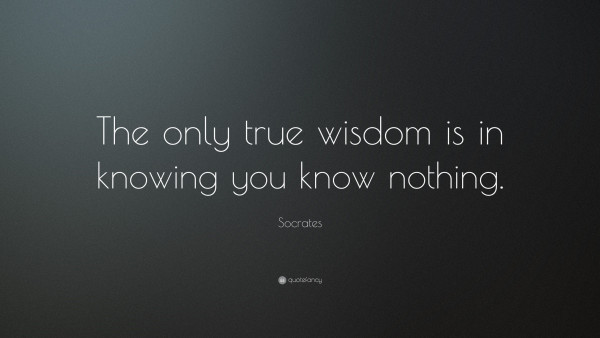I'll spoil the ending of this article. Yes, I believe at some point, AI will get to the point where it's as good as humans at almost everything.
It's already better than humans at many things – but as I've mentioned before, that doesn't make humans irrelevant.
The Development of Artificial Perception
As humans, we can only interpret based on what we know … and for the most part, we don't know what we don't know.

At the inception of artificial intelligence, humans would teach computers specific rules (or tell the computer that it should optimize on a particular measure). Early AI was basically a complex combination of simple algorithms created by humans. Now, computers can figure things out themselves, and some AI can even create new AI.
The success of AI at deep learning or reinforcement learning is about to skyrocket. The technology and the learning frameworks are progressing quickly. Combine that with expected hardware and software advances. Add to that the increased focus and attention that this industry is getting. Combined, this will attract even more opportunities, talent, and resources. Expect to be amazed!
Recently, a Deep Learning computation-imaging system correctly predicted which patients were pending heart failure with 97% accuracy - compared to human pathologists who are correct approximately 74% of the time. That is a meaningful difference, especially if the life at risk is yours (or that of a loved one).
And that's only one example. There are countless more. An AI assistant in Denmark listens to the equivalent of 911 calls and diagnoses heart problems. Many industries (like financial services, actuarial sciences, marketing, customer service, healthcare, medical device manufacturing, construction, and cyber-security) increasingly use predictive analytics. The possibilities seem endless.
Computers Don't Get Distracted.
Error is not a fault of our knowledge, but a mistake of our judgment giving assent to that which is not true. - John Locke
It makes sense that these machines can be more accurate than humans because they can ingest more and better data. Moreover, these systems process the data more thoroughly and deeply than humans do, in a fraction of the time (and with greater accuracy). AI is better and faster at combinatorial and dimensional expansion. It is modular and fractal. Because of these "truths" (and others), what used to be science fiction is now inevitable. Tiny AI capabilities combine with simple automation and the mechanical ability to follow checklists and best practices with precision in a simple, repeatable, and scalable way. The path is clear … and so is the result.
Meanwhile, humans are prone to fear, greed, and discretionary mistakes. They suffer from too many distractions, biases, and a tendency to relate current situations to past ones (or to follow patterns that are coincident rather than causal).
So, it isn't a fair fight. And rather than fight, we should figure out how to best take advantage of the new capabilities and possibilities AI creates for us.
Why? Partly because humans too often choose to be "happy" or "safe" rather than right.
The "Nightlight in the Dark" Phenomenon.
A nightlight might make you feel safer – but it likely won't keep you safe from the things you worry might hurt you.
Likewise, when you're in Vegas, you may have strategies and rituals that you hope provide an edge – but it is unlikely that your 'superstitions' change the odds in your favor or otherwise help you beat their system.
The paradigm shift is that with algorithms – or artificial intelligence – I don't care if I understand why something works. Instead, I care that my systems are valid and performing well. Really, I must only know that the system is useful and what its expectancy score is (over time) to compare it to other options.
Consequently, the best adopters of advanced technology and innovation aren't looking for a better algorithm; they're looking for more ways to win, better strategic certainty, and a way to compound their insights and learning to "raise the bar" and change the game.
Most AI methodologies are simple systems trained on extensive data lakes with simple goals … And that's a good thing.
Simple works. Simple is hard to break. Simple means there's likely more consistency. As Swarm Intelligence increases, these simple systems can communicate, coordinate, and collaborate to perform better and more consistently.
Can Artificial Intelligence Replace Human Perception?
Someone recently asked me whether I was worried that AI might eventually become more powerful than humans. My response was that I'm not concerned about that – because it's inevitable. AI is already good enough that you can use it to be good at almost anything. It's not yet good enough to be good at everything. But, objectively, we are in AI's infancy. These are exponential technologies creating exponential possibilities. The best response to its ascension is to figure out how to best leverage what it is good at (or makes possible) to improve the quality of our world and our lives. It doesn't make sense to fight mother nature, but rather to take advantage of the natural path it lays in front of you.
So, can AI replace human perception? As I said at the beginning, I do believe the answer is yes … eventually. But, with that said, there will always be things that humans are "better" at than an AI. The goal is to recognize that relying on and adopting advanced technologies and innovation frees humans to focus on what matters most and creates the most value. Freeing them from busy work (or lower-valued tasks) creates an opportunity for people to do nothing … or to fill that space with higher-level activities and achievements. Ultimately, the choice is ours.
While AI is an inevitability – there is a long road ahead. What you make that mean, what you choose to focus on, and what you ultimately do on that path is up to you.
Onwards!

Leave a Reply